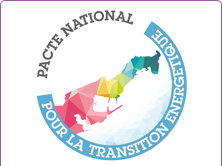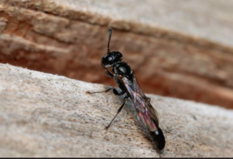World Bee Day
To draw everyone's attention to the key role played by pollinators, the threats which they face and their important contribution to sustainable development, the United Nations has decided to designate 20 May as World Bee Day.
The Principality of Monaco is taking part in this awareness day to promote the activities undertaken throughout the year.
Since 2013, the Principality, in association with the French National Forests Office (ONF), has been conducting scientific monitoring of pollinator "hotels". In 2020, six such hotels (located between Monaco and Mont-Agel) were monitored from March to September by an ONF technician; they are located in different habitats and are complementary in terms of the type of insects that occupy them.
At each visit, all the hotels were inspected and a representative sample of the insects visiting the hotel was captured and sent to the Office for Insects and their Environment (OPIE) for scientific analysis.
Although last year's lockdown made it impossible for certain surveys to be carried out, particularly at the insect hotel at the Saint Martin Gardens, the results have been encouraging as the use of these facilities is increasing.
Thus, in 2020, the following were noted:
• 18 species of bee,
• 9 species of spheciform wasp, and
• 1 species of vespoid wasp
It should be noted that domestic bees (Apis mellifera) are not part of this survey because they do not use this type of habitat.
The so-called wild or solitary bees (more than 1,000 species have been referenced) can be distinguished from domestic bees because of the way they are organised and the fact that they do not produce honey. In fact, wild bees are mainly solitary, with no queen. They stay close to their food source, since they have a range of approximately ten metres.
They do not make honey, either; every drop of nectar they collect is carefully mixed with pollen, forming small balls of food that are stored for future young bees - a pile can be seen in the insect hotel. They live for less than a year and usually die in winter, shortly after laying eggs. They are not aggressive towards humans and more than half of them do not even have a sting.
The silent work carried out by pollinating bees helps maintain biodiversity and agriculture. Sometimes they pollinate only one type of flower, which means that if the plant disappears, so does the pollinator, hence the fragility of food chains.
As concerns the insect hotel in the Saint Martin Gardens, a high occupancy rate of the drilled logs can be noted. The presence of a small wasp (Trypoxylon kolazyi) from southern Europe, which has not previously been reported in the Alpes Maritimes/Monaco, was also observed for the second time. This wasp makes its nest in various cavities but never digs holes itself. Its captures and paralyses its prey, which consists mainly of immature spiders, to feed the young in its nest.


[#YourMonaco]
— Gouvernement Monaco (@GvtMonaco) July 31, 2020
La Principauté se dote d'un nouvel outil de communication urbaine. https://t.co/5f1DsYi2No





